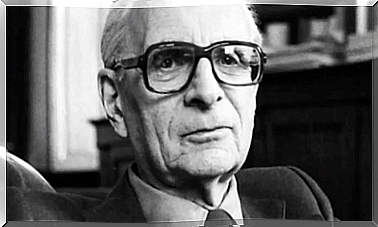How To Stop Overanalyzing

When faced with a problem or concern, it is inevitable that we think about it to try to find a solution. However, sometimes we sin to analyze excessively and, contrary to what we may believe, this is not beneficial either for the problem or for our well-being. For this reason, it is necessary to learn to dedicate the right and necessary time, as well as to learn to remove from our focus of attention issues that we cannot solve at the moment.
If that doesn’t happen, you can fall into what is called analysis paralysis syndrome. This phenomenon occurs when, after turning things around without acting, we also get blocked in other fields or initiatives. This blockage can lead to loss of motivation and focus, increased fear, reduced self-esteem, and a delay in achieving the goal.
To avoid reaching that point and learn not to over-analyze, here we propose a series of guidelines that will help you manage looping thoughts.

How to stop overanalyzing
One of the main steps is to understand why we tend to overanalyze. Behind it there may be different causes. On the one hand, it may be out of fear of failure or being wrong. That emotion makes us start to play with future scenarios in a dangerous way for our emotional balance.
“What if it goes wrong? What if I regret it? What if it affects other people?” In the end, the fear will disappear once we take action and only with experience can we respond and learn from it.
It can also happen that we go round and round a question in an inexhaustible and sterile search for perfection. Wanting to do things well is completely positive and legitimate. However, perfectionism can cause us to fall into a loop, which also makes us feel more insecure about what we do and tolerate failure worse.
In addition to analyzing the possible causes, another basic step is to be aware that, when we think, we process information through mental filters that distort perception. Thus, the guidelines to stop analyzing in excess consist of small exercises to clear the mind and get rid of those patterns that do not help us to see clearly.
1. Stop thinking
When you feel exhausted from dwelling on your thoughts for a long time, start this strategy. It simply consists of saying “enough!” yourself and abide by the order. That is, when you realize that you have been overthinking again, train a signal that stops you.
Accompany this internal speech with another task that distracts you. For example, go for a walk, call a friend or friend to talk about other things, put on the music you like … Anything apart from worry will do. The important thing is to take the step to want to divert the thought.
2. Time to think
If you are one of the people who spend time every day to analyze excessively, not only when a problem arises, you can set a schedule. Although it is curious, setting a limited time to think can prevent worries from ending up contaminating everything.
For example, you can dedicate half an hour each afternoon to think and analyze, postponing the thoughts if they appear at another time.
This limited time will help you rest your mind throughout the day and when you think you will see everything more clearly. In this sense, it is important that the time to think does not take place when you are anxious, sad or angry. At some point, when the time to think has come, it will be strange for you to force the analysis, so that little by little that need will disappear.
3. Talk to someone
Talking to someone else about your concerns can be really helpful. It will serve as an outlet, and it will also be useful for you to receive the advice and opinion of someone outside the problem. That person will think more clearly and objectively about the matter, and will also give you enough attention to understand you.
However, we should not let all the reasoning to be done by the other, just as we cannot expect someone to decide for oneself. Keep in mind that this person, despite being delighted to listen to you, also has to make decisions for their own crossroads. Therefore, do not abuse this strategy and go when you need real support.

Recover spontaneity and decision
The most important thing of all is that you are able to allow yourself to be spontaneous and decide. If you tend to analyze excessively, give yourself the opportunity to savor the pleasure of improvising, letting things flow and making decisions. Decisions, no matter how much they are analyzed, are usually made more based on emotions, which makes it less likely that we will regret later.
Also, create a positive loop in which to decide and not give it excessive importance, increase your confidence and your decision-making capacity in the future. Overeating only blurs your mind, so start putting these exercises into practice and free yourself from the burden.









